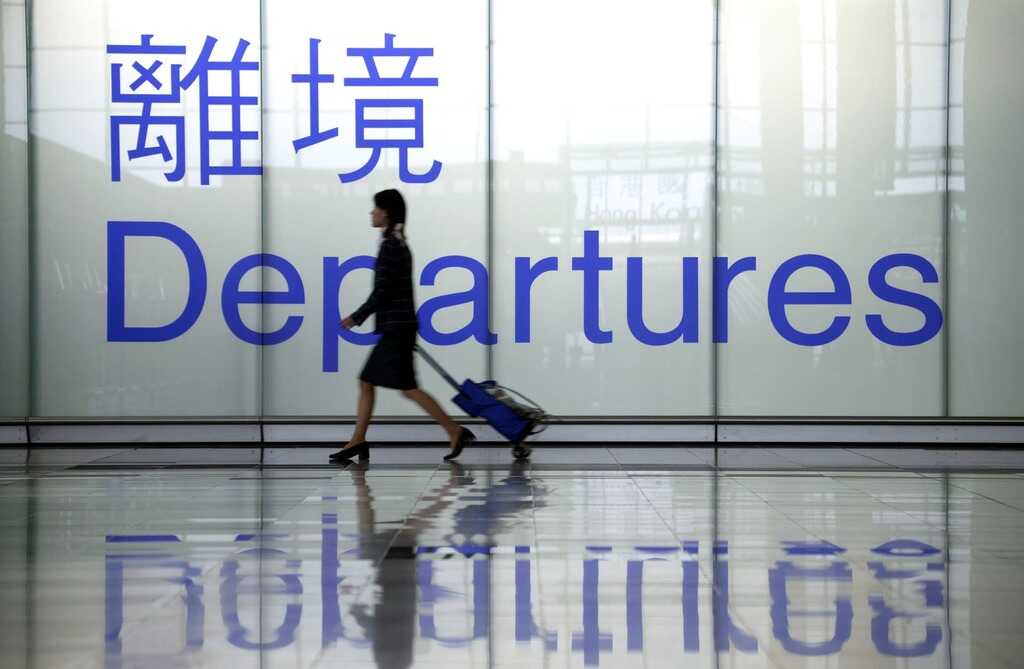News
China’s Reopening May Be Good for Thailand But Bad for Its Economy

The pandemic has enabled China to keep a significant amount of money at home. With expectations growing for the country’s full reopening, including its international borders, capital outflows could be China’s next headache.
According to Reuters, the People’s Republic of China has strict controls in place, with cross-border cash transfers for citizens limited to $50,000 per year.
Nonetheless, jet-setting tourists spent $255 billion abroad in 2019, increasing hotel revenue in Thailand and designer handbag sales in Paris. That’s a $765 billion savings over three years.
Rich people also send large sums of money overseas to send their children to Western schools and universities.
The pandemic has served as a useful impediment in China’s favour. Outbound travel to Thailand and other tourist destinations is discouraged by its strict quarantine rules and passport controls.
As a result, Chinese enrollment in US schools for the academic year ending in 2022 has dropped to 290,000, a 22% decrease from the peak two years ago.
With robust exports, China’s foreign reserves reached a five-year high at the end of 2021 and have remained above the $3 trillion mark.
With pent-up demand for overseas spending likely to be high, China may be tempted to seek benefits from keeping its borders closed.
China’s Economy slowing
The economy is rapidly losing steam, and the Federal Reserve’s rate hikes have put pressure on the yuan, bringing back unpleasant memories of Beijing burning through $1 trillion in reserves to defend the currency in 2015 and 2016.
There are also new reasons why people may want to transfer money abroad. A surge in Chinese family offices in Singapore, where property prices are skyrocketing, suggests that the super-rich are taking to the skies as President Xi Jinping’s drive for common prosperity gains traction.
According to the Henley Global Citizens Report, China will lose 10,000 high-net-worth individuals this year, the most after Russia.
Following the Covid-19 restrictions and related protests, more of the middle class may have a bleaker outlook on their own domestic prospects.
However, capital flight may be a cheaper option for China than remaining closed. A global slowdown is threatening exports, one of the country’s last economic bright spots: orders fell by 8.7% in November, more than expected.
Allowing sellers to meet clients abroad is one obvious way to prevent this growth engine from being suffocated by rising geopolitical tensions.
Concerned about falling foreign investment, cash-strapped local governments are already scrambling to organize business trips outside of China in order to restore confidence.
The longer China waits to fully open the border, the higher the cost.
Surge in Coronavirus Cases
Meanwhile, one of China’s top health experts has warned of an increase in COVID-19 cases, according to state media, following the government’s decision to abandon its hardline coronavirus strategy.
In an interview published Sunday, top epidemiologist Dr. Zhong Nanshan stated that the Omicron strain of the virus prevalent in China was highly transmissible and could lead to an increase in cases.
Following nationwide protests against harsh virus rules that had battered the economy and confined millions to their homes, China’s so-called “Zero-COVID” policy was eased.
China is now facing a surge of cases that it is unprepared to handle, with millions of elderly people still unvaccinated and underfunded hospitals unable to handle large numbers of patients.
Beijing’s shops and restaurants are deserted as the country braces for an increase in infections as a result of the decision to reduce the scope of mandatory testing, allow some positive cases to quarantine at home, and end large-scale lockdowns.
On December 7, China’s National Health Commission announced that infected people with mild symptoms can now be quarantined at home. It also eliminated the need for testing and health status checks on mobile apps for a variety of activities, including cross-country travel.
On Sunday, long lines formed outside pharmacies in Beijing as residents rushed to stockpile cold and fever medicines as well as antigen test kits.
Official caseloads in China have dropped dramatically as a result of the government’s decision to discontinue routine mass testing, with only special groups exempt from the rules, such as healthcare workers and delivery drivers.






























